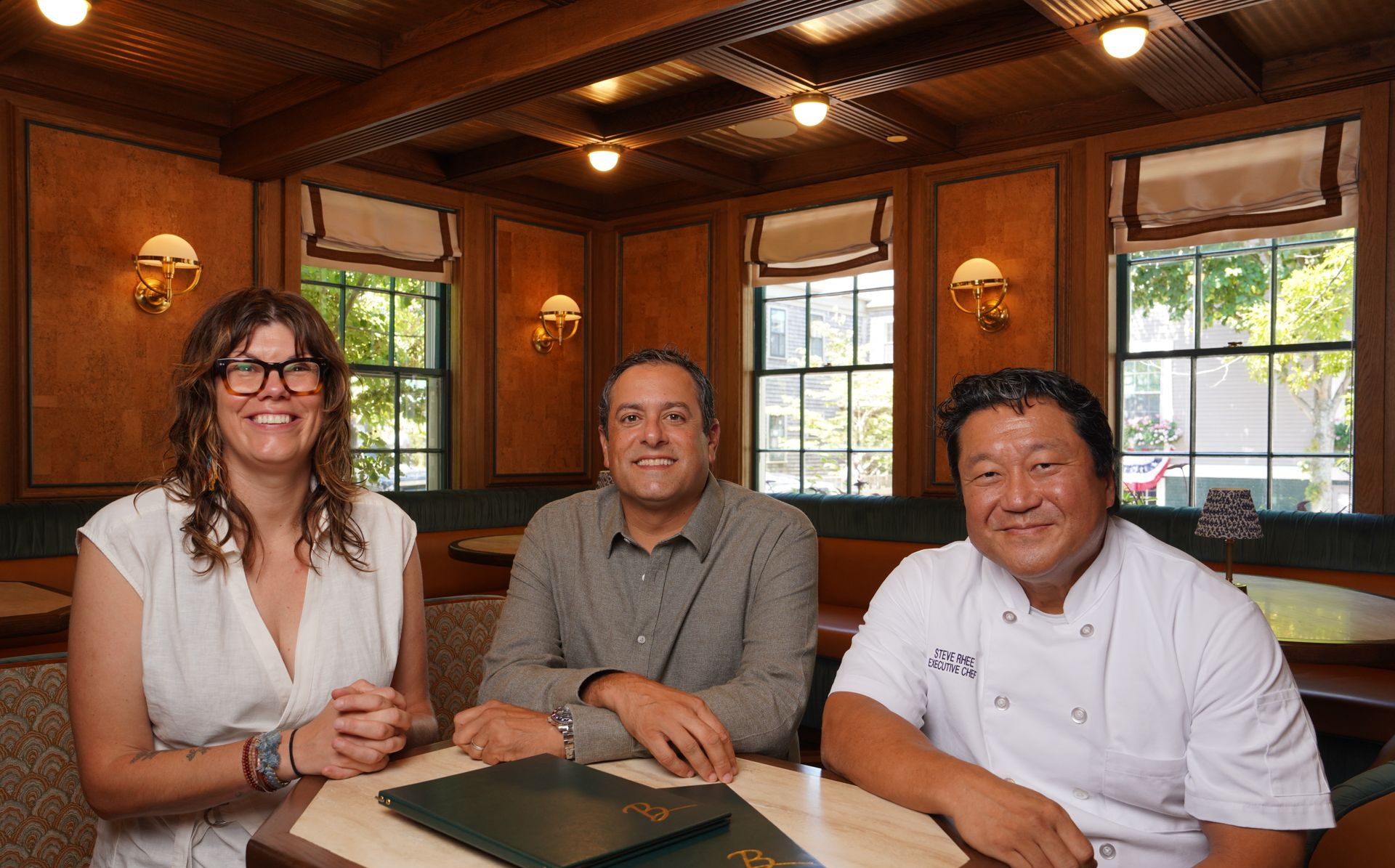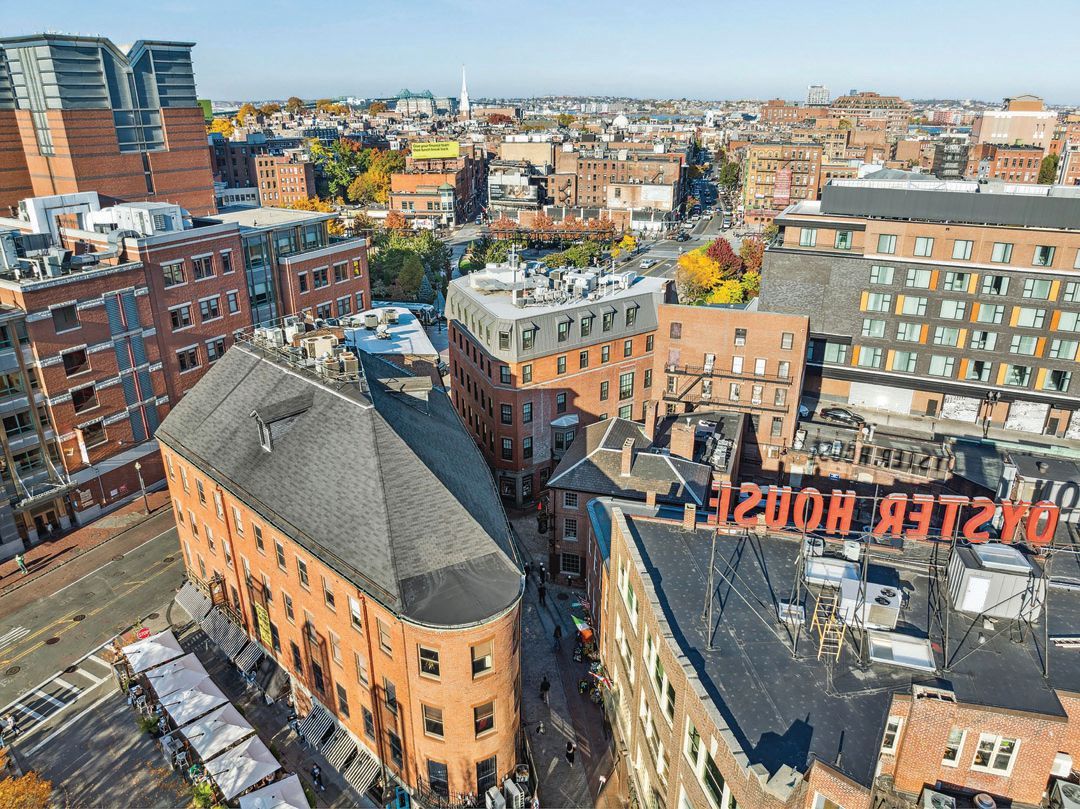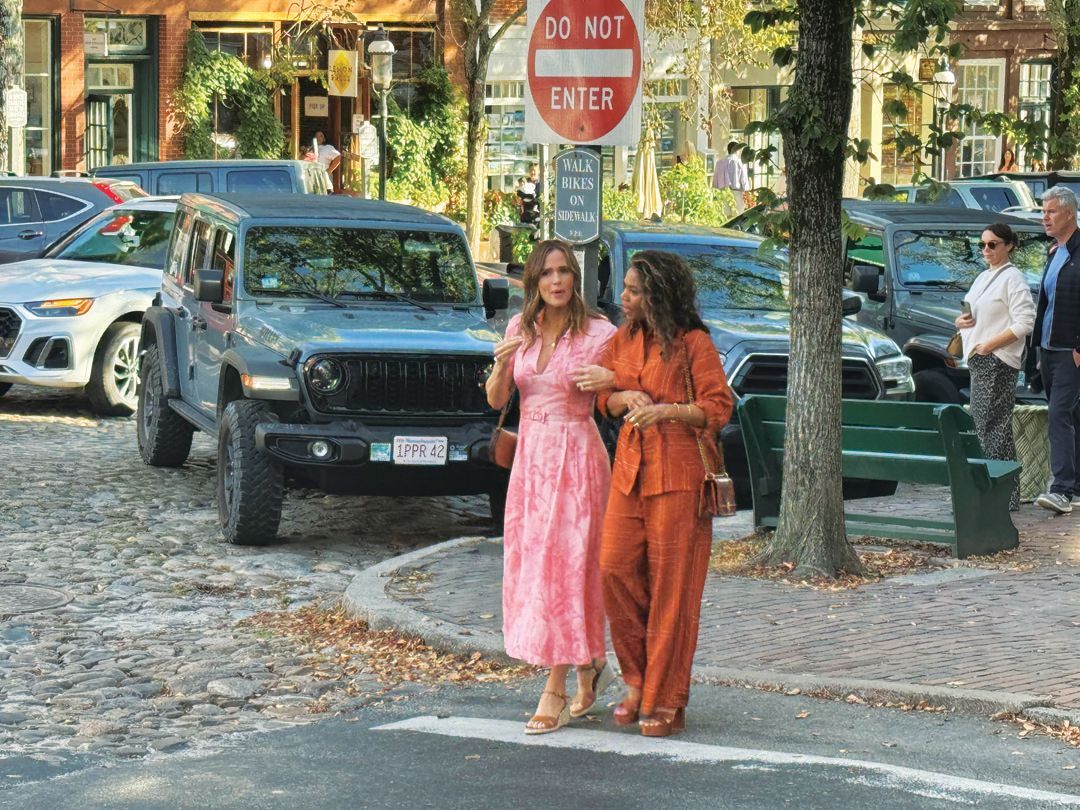The American Revolution, Retold
Documentary filmmaker Ken Burns comes to the Nantucket Film Festival to discuss his new series on the American Revolution
Interview by Brian Bushard
Photography by Kit Noble
Ken Burns has become synonymous with documentary filmmaking. Since his first film, Brooklyn Bridge, in 1981, the director behind documentary series like The Civil War, Baseball, The National Parks and Country Music has become the preeminent, reliable source in nonfiction storytelling, with his film collection distributed on PBS. Burns comes to the island for the Nantucket Film Festival this June, where he will discuss his new documentary, The American Revolution—a six-part series debuting this November commemorating the 250th anniversary of the Revolutionary War and shedding new light on the well-known era in American history. N Magazine sat down with Burns at the Old North Church in Boston for a conversation about the lesser-known stories of the Revolution, his filmmaking process and the parallels between the state of the nation then and today.
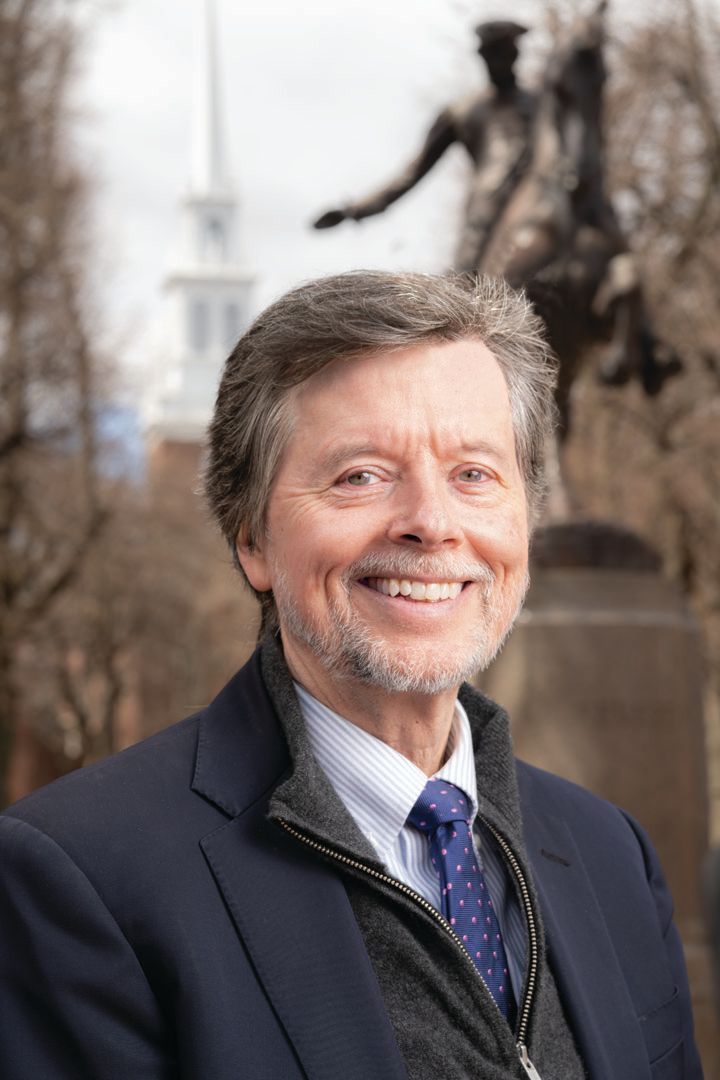
N Magazine: What brought you to Nantucket?
Burns: The first time I went to Nantucket, I was going on a vacation with my then-wife-to-be, who was already pregnant with our first daughter, for a belated wedding, and we spent a couple weeks on Nantucket. It was really idyllic. The next time I was there for the wedding of a very close friend of mine from my Hampshire College days. Since then it’s been periodically—to be with friends, to go with family. There definitely is a charm to Nantucket, and the food is some of the best I’ve ever had.
N Magazine: How did you come up with the idea for a documentary series on the American Revolution?
Burns: The ink was still drying on our film series on the history of the Vietnam War, and I said we’re doing the Revolution next. There was no sense of the250th anniversary. As we were working on and got immersed in production, COVID came along, and all of a sudden, we’re opening up the editing room, going, “Wow, do you realize we’re going to get this done intime for the 250th anniversary of Lexington and Concord?”—which is when the Revolution started. That’s the name of our film: The American Revolution. It’s not “The Declaration of Independence” or “The Forming of the United States of America. ”I thought we’ll be out in the fall and that it’ll help us have a national conversation, so that when we finally get around to the 250th anniversary of the Declaration of Independence, we’ll have a much more informed and nuanced and complicated view of the Revolution.
N Magazine: Did your research put the Revolutionary War into anew perspective?
Burns: We tend to hold [the Revolutionary War] at arm’s length and protect it. It’s been encrusted with the barnacles of sentimentality. We accept the violence of the Civil War and all the 20th-centurywars we were involved in, but we just want to protect the Revolutionary War. What we learned is that those great ideas are, in fact, even greater and more inspirational when you understand the context of this bloody civil war. Our Civil War was a sectional war, North against South. But the American Revolution was a true civil war in which families, communities, neighborhoods, towns and states were divided. It’s brutal, and it’s fascinating knowing the human beings that emerged from it—not just the boldface names like the Washingtons, John Adams, Thomas Jeffersons and Thomas Paines—but folks that we’ve never heard of.
N Magazine: Were there stories you uncovered that surprised you? Of course, and it will do that for everyone else. When we make something superficial or we romanticize it, we basically enter into a binary, where there’s a good guy and a bad guy. Take somebody like George Washington. You understand the complications of his life as a deeply flawed person who is rash at times. He runs out on the battlefield with foolish bravery and at times jeopardizes his own life, and therefore the entire cause. At the Battle of Long Island, which is the biggest battle of the American Revolution, he suffers a devastating loss for the patriots. He makes a huge tactical blunder and doesn’t protect his left side, and the British come around and force the surrender of several generals. But at the same time, as you progress, you begin to realize that there is no way we have a country without him. In our fifth episode, there is a German-language newspaper in Lancaster, Pennsylvania, that calls him our country’s father. It’s the sense that we don’t become a nation without George Washington. That’s exhilarating, too. There are no perfectly virtuous or perfectly villainous people. That’s the exciting part of telling a good story. What makes Shakespeare so great is that none of his characters are one-dimensional; they have undertow. They have a surface, but underneath the surface, there’s depth, and that’s what you want to try to achieve
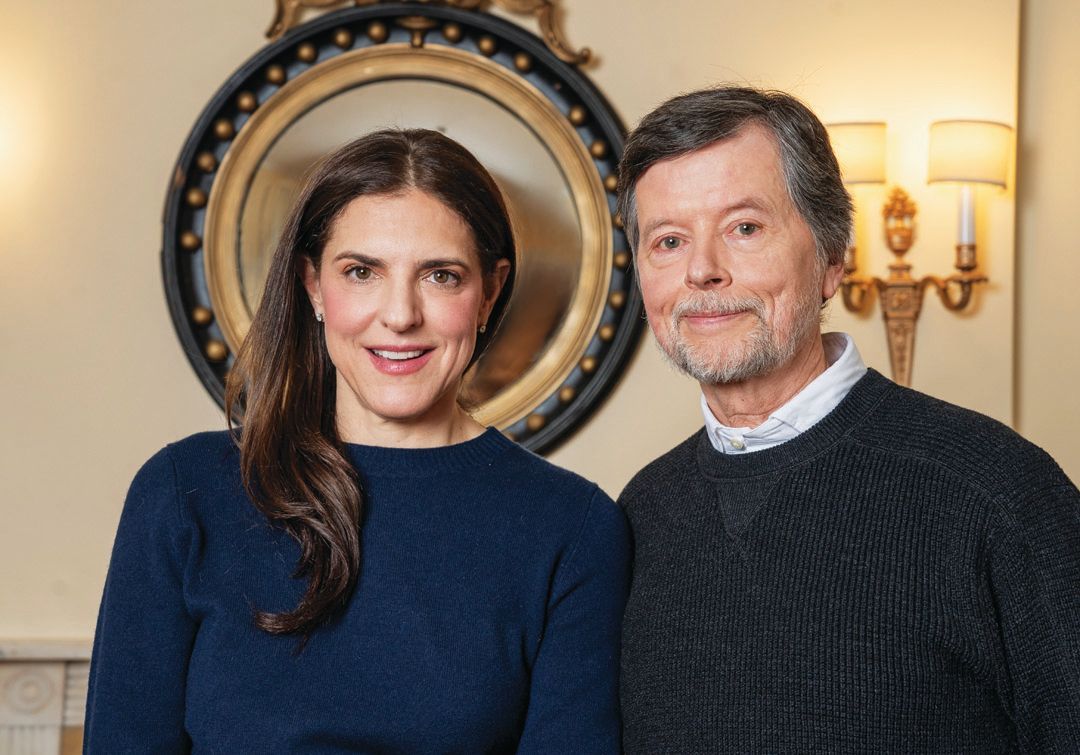
N Magazine: You’ve looked into the tensions that led up to the Revolutionary War. Do you see any parallels to today?
Burns: Of course. We know that human nature doesn’t change. The Bible says in the Old Testament that there’s nothing new under the sun. I’ve learned now from nearly 50 years of doing this that when you finish a project and lift your head up, it’s rhyming. As Mark Twain said, “History doesn’t repeat itself, but it often rhymes.” It’s rhyming in the present in so many different ways. We’ve been divided for most of our history in many ways. And what is so extraordinary about the story of the United States of America is how all of these disparate elements have actually succeeded pretty well in maintaining the cohesion. And so I hope that in someway, this film could contribute to the idea that we could put the “us” back in the U.S.
N Magazine: You have said you will not make a more important film than this. Why?
Burns: First of all, it’s the subject matter, the origin story of the greatest country in the history of the world. This is the most consequential revolution, as we say in the first minutes of the film. I believe the most important event since the birth of Christ is the birth of the United States. It is born in violence, and it is born with lots of tensions and pushing and pulling. It’s as magnificent and as inspirational a story as you could have in the midst of that violence and brutality, and that’s what we look for. This is a story firing on all cylinders that has so much meaning for Americans at any time that you consider the Revolution and our birth.
N Magazine: Has AI changed the game with documentaries?
Burns: It hasn’t changed mine, and that’s the only one I care about. If they’re happening in other places, I’m incredibly concerned about that, because then you’ve acknowledged that your master is not the truth but something else, something expedient, whatever it might be. We just can’t do that. We want to get the facts right as they happen. This is a subject matter that has no photographs, that has no newsreels, and so we’ve had to take paintings, drawings, maps, documents, signatures and live cinematography of America. I have an obligation to my audience, and I’m not sure that others who take the expedient route have actually done anything but erode an audience’s confidence in what it is. I have a reputation that I intend to protect completely and wholeheartedly and not take any shortcuts. I have in my editing room a small neon sign that says, “It’s complicated."
N Magazine: What do you hope is the takeaway of this film?
Burns: We’re spending 10 years on it. We are shaping it into this complex narrative with lots of subsidiary stories and people that everybody knows but who are complicated by certain dynamics in their life, and we’re introducing you to even more people that you’ve never heard of who have as complex lives as anybody that we do know. We don’t have a prescription about how you should respond or what you should take away. Given the fact that we are coming up on the 250thanniversary of the United States, we’re thinking carefully and deeply about the meaning of our country, its intentions. Everybody before the formation of the United States was a subject. Afterwards, we have people who were citizens, and the responsibilities of that are so immense and so profound, and itis so inspirational and moving.

